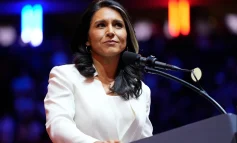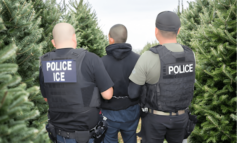WASHINGTON — Leaders of America’s core white supremacist groups have a laundry list of perceived grievances. They say the media ignore black on white crime; that desegregation has led to poorer schools for white students; that white people in the United States have lost power to black people.
And while they don’t condone last week’s shootings of nine black worshipers at a Charleston church, many of the leaders say they understand the motivation behind the attack – and predict more violence to come.
Interviews with half-a-dozen prominent white nationalists reveal a movement that they say has been re-energized by such things as the election of America’s first black president and, more recently, what movement leaders describe as “a siege” against white police officers.
“A lot of the whites in the U.S. are starting to wake up,” Robert Jones, grand dragon of the Loyal White Knights of the Ku Klux Klan in North Carolina, said in an interview. White people, he said, are getting “fed up” with the lack of attention paid to crimes against white people by blacks.
But that anger hasn’t translated into membership growth for established hate groups. The Ku Klux Klan today, for instance, is a shadow of the white supremacist force it was in the 1920s, when its numbers peaked at about 6 million members. Today, the Klan has about 2,000 to 3,000 members nationally, with about 72 chapters, known as klaverns, according to the Southern Poverty Law Center, an organization based in Montgomery, Ala. that monitors extremist groups.
Overall, the number of white nationalist groups identified by the law center was 518 last year, compared with 736 in 2008. And hate crimes have remained steady over the past decade.
But those numbers may be misleading, the law center says, noting that the Charleston killings underscore fundamental changes in how the “white power” message is being spread today, with younger adherents shunning group membership in favor of the convenience and anonymity of online forums. One such site, Stormfront, describes itself as “a community of racial realists” and says that its number of registered users has more than doubled since 2008 to 300,000.
Dylann Roof, the man accused of last week’s attack at Emmanuel African Methodist Episcopal Church in Charleston, is not known to have joined any of the established hate groups, but a manifesto attributed to him describes how he was radicalized online, learning about “brutal black on white murders” while surfing the website of the white nationalist Council of Conservative Citizens.
Bradley Griffin, a Council board member, called the Charleston attack “horrifying,” And attempted to distance the organization from the killings. “No one in our group has ever said, ‘Go pick up a gun and shoot random people.’ I don’t know where this guy got that idea from,” he said in an interview.
But he also said he’s sympathetic to Roof’s anger. “If anyone touches a hair on a black person, it’s international news, whereas the most horrific crimes imaginable are inflicted on whites all the time, and I think the media kind of wants to downplay that,” he said. The Council’s website, which has since been taken down, described the group “as the only serious nationwide activist group that sticks up for white rights” and warned against “modern Negro thuggery.”





Leave a Reply